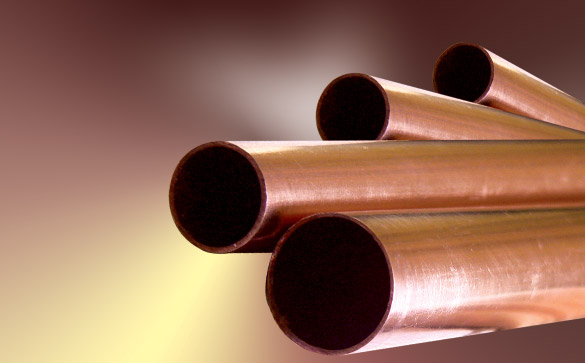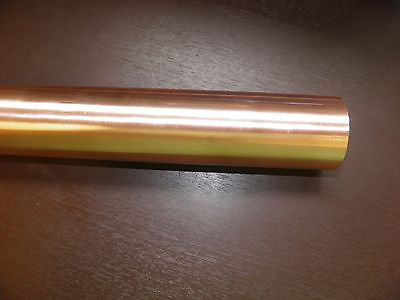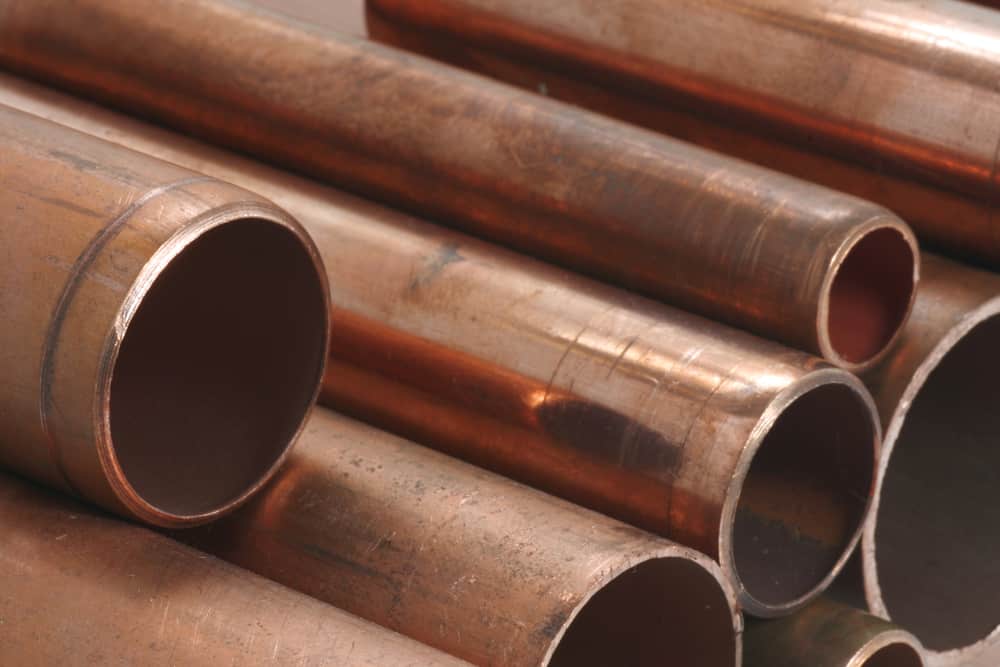What Type Of Copper Pipe is Best for Gas Lines
When it comes to installing gas lines in your home or commercial property, selecting the right materials is of paramount importance. Copper pipes have long been favored for their durability and reliability, making them a popular choice for gas line installations. However, not all copper pipes are created equal. In this article, we will explore the various types of copper pipes and determine which one is best suited for gas lines.

The Importance of Choosing the Right Copper Pipe
Gas lines play a pivotal role in every structure, ensuring the secure conveyance of natural gas or propane to fuel heating systems, stoves, water heaters, and various appliances. Any compromise in the pipes’ quality or structural integrity could result in the emergence of potentially dangerous gas leaks, thereby presenting a substantial threat to occupants. Consequently, selecting the appropriate copper piping is imperative to guarantee the safety and durability of your gas line infrastructure.
Types of Copper Pipes
1. Type K Copper Pipe
Type K copper pipe is the thickest and most durable option, making it an excellent choice for gas lines. It is commonly used in underground installations, as it can withstand significant pressure and corrosion. The thickness of Type K pipes also contributes to their ability to handle the high-pressure demands of gas distribution.

2. Type L Copper Pipe
Type L copper tubing, while slightly thinner than Type K, remains a viable option for gas pipelines, finding frequent application in both residential and commercial settings. This tubing variant offers commendable resistance to corrosion and stands out for its malleability, facilitating easier handling during installation.

3. Type M Copper Pipe
M-Type copper tubing, the slimmest among the primary categories, finds its primary application in low-pressure scenarios like water supply lines. While it can suffice for certain gas line setups, it’s not the optimal selection for high-pressure systems.

READ MORE: WHAT IS BUTTON HEAD SCREWS , AND PROPERTIES , APPLICATIONS
Selecting the Right Copper Pipe for Gas Lines
To determine the best copper pipe for your gas line project, you need to consider several factors:
1. Gas Type: The type of gas you are transporting will impact your choice of copper pipe. Natural gas and propane have different pressure requirements, so make sure to select a copper pipe that can handle the specific gas type.
2. Pressure Requirements: Gas line pressure varies depending on the application. High-pressure systems will require a thicker-walled copper pipe, such as Type K, while lower-pressure systems may be served well by Type L.
3. Local Building Codes: Always check your local building codes and regulations, as they may dictate the type of copper pipe you are allowed to use for gas lines. Compliance with these codes is crucial for safety and legal reasons.
4. Environmental Conditions: Consider the environment in which the copper pipe will be installed. If it will be exposed to corrosive elements or buried underground, Type K copper pipe may be the most appropriate choice due to its durability and resistance to corrosion.
5. Cost: Your budget is an important consideration. Type K copper pipe is typically more expensive than Type L or Type M, so assess the cost versus the benefits of each type to make an informed decision.

Installation Tips
Installing copper pipes for gas lines requires precision and attention to detail. Here are some installation tips to ensure a safe and reliable system:
1. Soldering: Use proper soldering techniques to join copper pipes. This ensures a secure connection that will not leak gas. Make sure to clean and flux the pipe ends before soldering.
2. Inspection: Regularly inspect your gas line system for any signs of corrosion, damage, or leaks. Address any issues promptly to prevent accidents.
3. Use the Right Fittings: Choose fittings and connectors that are approved for gas line applications. Ensure they are compatible with your selected copper pipe type.
4. Conducting a Pressure Test: Following installation, carry out a pressure testing procedure to identify any potential leaks or vulnerabilities within the system. It is essential to entrust this evaluation to a certified expert.

Conclusion
Conclusively, the process of selecting the most appropriate copper pipe for your gas lines holds immense significance in shaping the safety and efficiency of your gas distribution network. With three prevalent copper pipe options available – Type K, Type L, and Type M – your decision should be informed by an array of factors. These factors encompass the nature of the gas, pressure prerequisites, adherence to local regulations, prevailing environmental conditions, and budgetary constraints.
It cannot be emphasized enough how crucial it is to strictly adhere to correct installation protocols. This encompasses a rigorous adherence to meticulous soldering techniques, comprehensive inspections, and stringent pressure testing. Your dedication to these installation procedures is paramount for ensuring a reliable and secure gas distribution system. This diligence is crucial in establishing a gas line system that is both secure and dependable. It is always advisable to seek guidance from a seasoned plumber or gas technician to ensure full compliance with local ordinances and to make an informed decision tailored to your specific requirements.
By combining the appropriate copper pipe with meticulous installation, you can look forward to the benefits of a safe and efficient gas distribution system that will serve you reliably for years to come.
READ MORE: How to start a new startup business on Deepawali 2023




